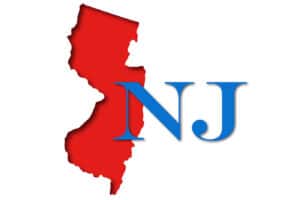Thom Amdur Author Archives
New Developments: Trump budget neglects the neediest
Affordable housing developers take on many risks during their day-to-day business. There is construction risk, interest rate risk, headline risk and, as we are experiencing more and more, political risk.
Up on Nixon Peabody’s Roof
On a cold day last December, I stood on the roof of the Washington, DC building where the Nixon Peabody law firm has its DC headquarters with partners Jeff Lesk and Herb Stevens gazing at the expanse of empty roofs and imagining the possibilities.
New Developments, Grabbing This Political Moment
It is the eve of Donald Trump’s inauguration as the 45th President of the United States. As expected, he and the Republican-led 115th Congress are already shaking things up across the board and healthcare reform is front and center.
New Administration, New Opportunity
Despite the extended and rancorous election season we just endured, as I look back over the past 12 months I think our industry had a pretty good year. By and large, owners and developers benefited from historically low interest rates and high tax credit equity pricing. Sellers benefited from low cap-rates, and there continues to be a strong demand for rental properties in most markets.
Lost in Transition
It will take some time to fully digest the results from this year’s election, but I wanted to share some initial thoughts on what this may mean for our industry.

Early Reflections on the 2016 Election
It will take some time to fully digest the results from last night’s election but I wanted to share some initial thoughts on what this may mean for our industry. Whether you are a Republican or Democrat we must collectively figure out a way to come back from the divisive politics that characterized this election. […]
Naturally Affordable
Housing is generally considered affordable if total housing costs do not exceed 30 percent of an individual’s gross income. This is really more of a programmatic definition than a practical one; it is a helpful measure for setting subsidized rents and utility allowances for low-income families that are lucky enough to live in LIHTC or Section 8 housing.

Long-Time Boston Affordable Housing Leaders Recognized by National Housing & Rehabilitation Association
The National Housing & Rehabilitation Association (NH&RA) presented two recipients with this year’s Affordable Housing Vision Awards. The awardees are Maurice Barry, Chief of the Asset Resolution Branch in the US Department of Housing & Urban Development (HUD) Multifamily Boston Satellite Office and Fred Copeman, Esq., Principal and National Director of Tax Credit Investment Services at CohnReznick LLP. Barry and Copeman were honored at an awards reception at the NH&RA Fall Developers Forum on November 1st at the Langham Hotel in Boston.
What’s At Stake This November
In a little more than a month, voters (or, at least, that minority of the eligible electorate that actually casts a ballot) will go to the polls and exercise their franchise.
Bonding
In our June 2016 issue, we dedicated our cover story to the resurgence of tax exempt bonds. In that issue, Bond Attorney and NH&RA Director Wade Norris asked our readers, “Are we on the verge of a volume shortage?” And the answer in an increasing number of states is yes. This has caught many in our industry by surprise; after all, since the financial crisis, the volume cap across the country has been abundant. But if the current trend continues, the non-competitive credit might soon become competitive in a diverse mix of states including California, Connecticut, Massachusetts, Minnesota, New Jersey, New York, Pennsylvania, Tennessee, Utah, and perhaps others.
Affordable Housing as a health intervention
The intersection of housing and healthcare is a fascinating topic that I keep coming back to in this column and in my work with NH&RA.

Preston C. Moore: In Memoriam
It is with great sadness that we report that our friend and colleague Preston C. Moore passed away at his home on Tuesday July 5 at the age of 84. Preston was the President of Urban Home Ownership Corporation in New York City and one of the founding members and a longtime Director of National […]